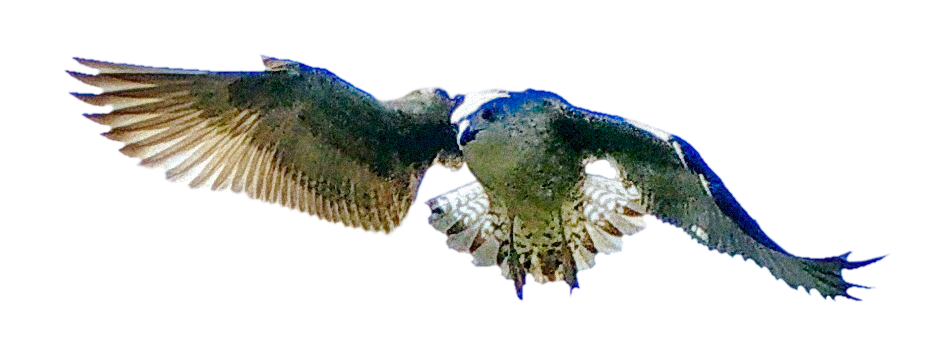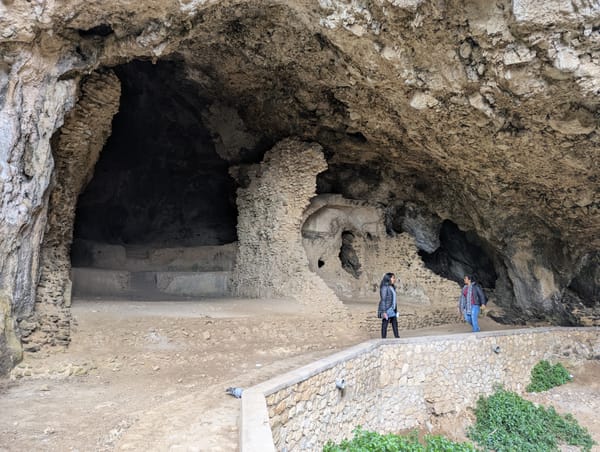The Brain and the limitations of AI

Every year, thousands of bright minds enter neuroscience programs driven by a profound question: How does the brain work? They emerge years later with advanced degrees, sophisticated experimental techniques, and an uncomfortable realization—despite accumulating vast amounts of data about neural mechanisms, the fundamental mystery remains unsolved. We can map every synapse, record from thousands of neurons, and model neural networks with extraordinary precision, yet the leap from neural activity to thought remains as mysterious as ever.
This dialogue explores a troubling possibility: that our failure to understand how the brain works isn't a temporary problem awaiting more data, but a sign that we're using the wrong conceptual framework entirely. Perhaps our computational paradigm has led us down a productive but ultimately dead-end path, because the brain cannot be explained in terms of computation. From this neuroscientist's perspective, the impasse suggests we need not just new computational methods, but a fundamentally different approach to understanding the relationship between mind and brain—one that might require something like Geneosophy's reconceptualization of knowledge itself.
The neural paradox: a dialogue.
Dr. Elena Doubtful, a neuroscientist, sits in her laboratory office across from Dr. Thomas Inquirer, a philosopher of science. The walls are lined with brain atlases; imaging equipment hums in the background.
Elena (looking up from a stack of neural data printouts): You know, Thomas, there's something deeply ironic about my career choice. I went into neuroscience to understand how the brain works. Twenty years later, I'm more convinced than ever that no one really understands how the brain works.
Thomas (raising an eyebrow): That's quite the confession from someone with over a hundred papers on neural mechanisms. What do you mean exactly?
Elena (pushing the papers aside): We have mountains of data. We know how sodium channels behave, how action potentials propagate, how synapses release neurotransmitters. We can map every connection in a fruit fly brain, even record thousands of neurons firing in a mouse. But ask me how any of this gives rise to a thought, a memory, a decision—
Thomas (leaning forward): And you draw a blank?
Elena: Worse than a blank. I suspect we’re not even asking the right questions. It’s like studying the chemistry of ink and expecting to understand Shakespeare.
Thomas (thoughtfully): So the reductionist approach—breaking the brain into parts to understand the whole—has hit a wall?
Elena (standing, gesturing to a brain diagram): Look at this. We know neurons fire and form networks. We can model individual neurons with incredible precision. But the gap between “neuron fires” and “person decides to quit their job”—that gap isn’t closing. If anything, it’s growing wider.
Thomas: Because the more mechanisms you uncover, the more elusive the mind becomes?
Elena: Exactly. And here's what bothers me most: we equate understanding neural activity with understanding information processing—as if the brain were just a biological computer.
Thomas (standing too): And you're questioning that assumption?
Elena (turning to face him): What if the brain isn’t computing at all? What if we’ve forced it into a computational metaphor because we don’t know how else to conceptualize it?
Thomas: That’s radical. The whole field—AI, cognitive science, neuroscience—rests on that metaphor.
Elena (pointing): Where’s the proof? Sure, neurons seem to process signals, integrate inputs, generate outputs. But is computation the right paradigm, or just the only one we’ve got?
Thomas: Then what is the brain doing, if not computing?
Elena (sitting again): Maybe it’s doing something we don’t even have words for yet. Something like autonomous creativity. Continuous meaning-creation. Maybe the brain isn’t what we need to understand.
Thomas (returning to his seat): That sounds almost mystical.
Elena: No, listen. When I observe learning, I don’t see information being stored like files. I see dynamic, shifting patterns—more like jazz improvisation than code.
Thomas: So the brain’s activity is creative, not computational?
Elena: Maybe we need a new metaphor. Maybe thoughts aren’t representations of the world, but ongoing acts of world-creation.
Thomas: But we can predict neural responses. We decode motor cortex activity. Doesn’t that validate the computational model?
Elena: We can correlate, yes. But prediction isn’t understanding. I can push a button and predict a light will turn on—that doesn’t mean I understand electricity.
Thomas: So all our predictive success is just sophisticated curve-fitting?
Elena: Not worthless, but limited. We map correlations between brain states and mental states—but we don’t know why they exist or what they mean.
Thomas: Then what would genuine understanding look like?
Elena (pacing): First, we define what we mean by "understanding." What kind of model would truly satisfy us? Maybe our concept of understanding is flawed—it breaks things into parts. Maybe we need a whole new way to think about knowledge.
Thomas: Different how?
Elena (stopping): By asking: how is knowledge generated, and by whom? What if we stopped treating the brain as an object, and asked instead: who generates concepts and objects? And here’s the kicker—you’re not allowed to answer with more objects and concepts. No infinite regress.
Thomas: I’m not following.
Elena (sitting on the desk edge): We’re not outside observers of brain function. We are brain function—or rather, we are that mysterious generator of experience. Maybe there is no outside. No objective stance.
Thomas: That would make neuroscience... impossible?
Elena: No. Neuroscience is fine—at finding objects and their correlations. But we need a new direction. Instead of explaining thoughts with neurons, maybe we should explain neurons through something deeper.
Thomas (abruptly standing): You’re suggesting we invert science. Put subjectivity first.
Elena (meeting his gaze): Or dissolve the subject-object divide altogether. Maybe mind and brain are two expressions of a single, unified "something else".
Thomas (pacing): But how would you study that? How would you experiment?
Elena: Maybe by developing methods that integrate first-person experience with third-person observation. Seeing them as complementary.
Thomas: That would change the definition of science itself.
Elena: Or add a new dimension to it. Science can continue studying objects and correlations. But we might find a way to reason about the conditions that allow those objects and correlations to exist.
Thomas (sinking into his chair): You’re saying centuries of materialism might rest on a category error.
Elena (softly): Maybe our failure to explain subjective experience isn’t just a technical hurdle. Maybe we’re using the wrong framework entirely.
Thomas: And how do we begin to build a new one?
Elena (tracing a neural pathway diagram): Not with more spike measurements. With new concepts. New tools. A new sense of what it means to understand. Maybe we’re at the beginning of something radically new.
Thomas (heading for the door): And what about AI? If the brain doesn’t compute, what are we building?
Elena (following): Maybe we’re trying to build something we don’t understand, with tools that can’t capture it.
Thomas: The neural paradox: the more we understand the brain, the less we understand the mind.
Elena (opening the door): Or maybe mind and brain aren’t separate things to connect, but an expression of autonomous creative multiplicity. Not to be explained in terms of computation.
Thomas (slowly standing): This has been... unsettling. You’ve made me question assumptions I didn’t even know I had.
Elena (turning to him): Good. That’s where real inquiry begins.





